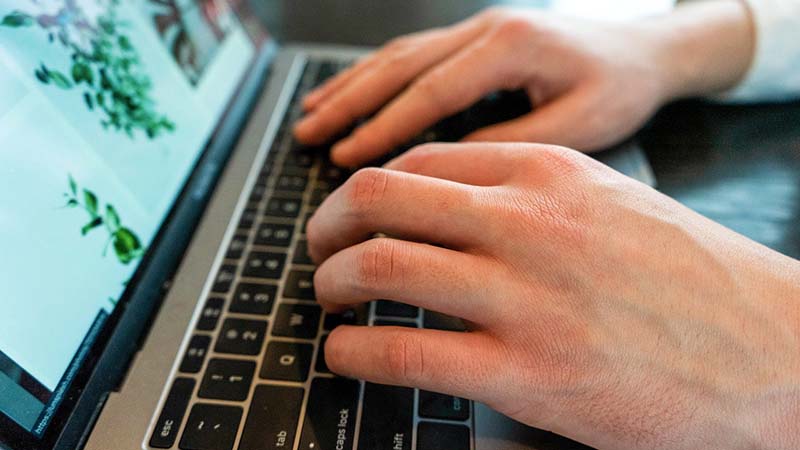
HTTPS is the most widely used method of protecting your web browser (HTTP Secure). If you visit specific websites like Amazon or Facebook while using Firefox or Chrome, this will be shown at the bottom of every page in red text. It indicates that these websites are employing an encrypted connection to communicate with the computers of their users in order to prevent third parties from intercepting messages delivered over the insecure HTTP protocol.
The internet is a strong resource that can assist you with anything. It also comes with a lot of hazards and perils, though. For instance, if hackers or other malevolent individuals intercept your data, they may exploit this sensitive information against you. Secure your traffic before transferring any critical information over the internet because of this.
Data Transmission.
The act of delivering data from one computer system to another is known as data transmission. Direct connections or remote access both work for this.
How Do You Secure Your Data?
You must take security measures to protect yourself from hackers and other bad actors who might try to obtain your personal information by breaking into your system or by connecting through an unsecured connection.
Strong passwords must also be put up so that even if someone gains access to your network, they cannot access any other locations where sensitive data is stored (such as banking accounts).
Encrypt Your Data
Use encrypted connections, such as HTTPS or SSH, to prevent hackers from stealing your data while they are still on the same network as you.
Avoid using public wifi or computers in coffee shops and libraries because they frequently have weak security measures in place and could be watched by hackers who could later exploit them.

How To Secure Your Data?
You can make use of a VPN to secure your data. A virtual private network, or VPN, encrypts all of the data that moves back and forth between your computer and the server. This way, because it’s encrypted, even if someone tries to break into your computer or intercept it as it travels over the Internet, they won’t be able to see anything.
How Does It Work?
Encryption:
The traffic you send via a virtual private network is encrypted. This implies that even if the information is being transmitted via the internet, only the sender will be able to see what the recipient is saying and doing.
IP Address Masking:
Devices connected to a VPN have their IP addresses modified to prevent anyone from tracking them to their real location. This makes it more difficult for individuals to figure out which machines are connected to the network and, consequently, who—if anyone—might be eavesdropping on them as well.
Anonymous Browsing:
Using an anonymous connection means that even if someone tries to figure out where you’re accessing information from each time you log into an account (such as Facebook or Google), they won’t know exactly where from since these details have been changed before reaching their destination point; rather, only allowing access through whatever gateways are open at any given time…
How To Use VPN.
You can make use of a VPN to secure your data. A virtual private network, or VPN, is an encrypted connection between your computer and the internet that enables you to browse information from regions other than your own while also shielding your true IP address from prying eyes.
There are numerous different types of VPNs, some of which permit multiple computers or devices per account while others only permit one device per account (like using an app downloaded from Google Play).
Why Don’t People Use VPNs?
There are numerous explanations if you’re wondering why individuals don’t use VPNs. They don’t even know what a VPN is, to start. They can also dismiss it since they believe it to be hard and challenging to comprehend.
In some nations, your government or ISP must provide you with specific permission before you may use a VPN service to access the internet (Internet Service Provider). This implies that if you want to use a VPN in your country, you will either need to pay more for the service or run the risk of facing legal consequences if hackers or officials catch you using it without permission.
Another reason why individuals don’t utilize VPN is that they are unable to determine where it will function most effectively for them. Do I require one? What should I purchase or use as my gadget? What the monthly cost is, etc. These are only a few of the questions that may come up when deciding among the various solutions that are currently available.
Nowadays You Need To Secure Your Traffic.
Why? Because there are lots of people who could steal your information and exploit it for fraud or other more serious crimes.
To make people believe they are in another country when they send messages or make transactions online, for instance, they utilize a high speed VPN server and alter the IP address of this service. In addition, before allowing customers to access their services, many websites request personal information from them such as passwords or credit card details (e-commerce websites).
If someone gets access to these kinds of files, they may be able to access accounts secretly, even for a brief time (e.g., one day).
Conclusion
We believe we have provided you with sufficient information on how to use a VPN and safeguard your privacy.







